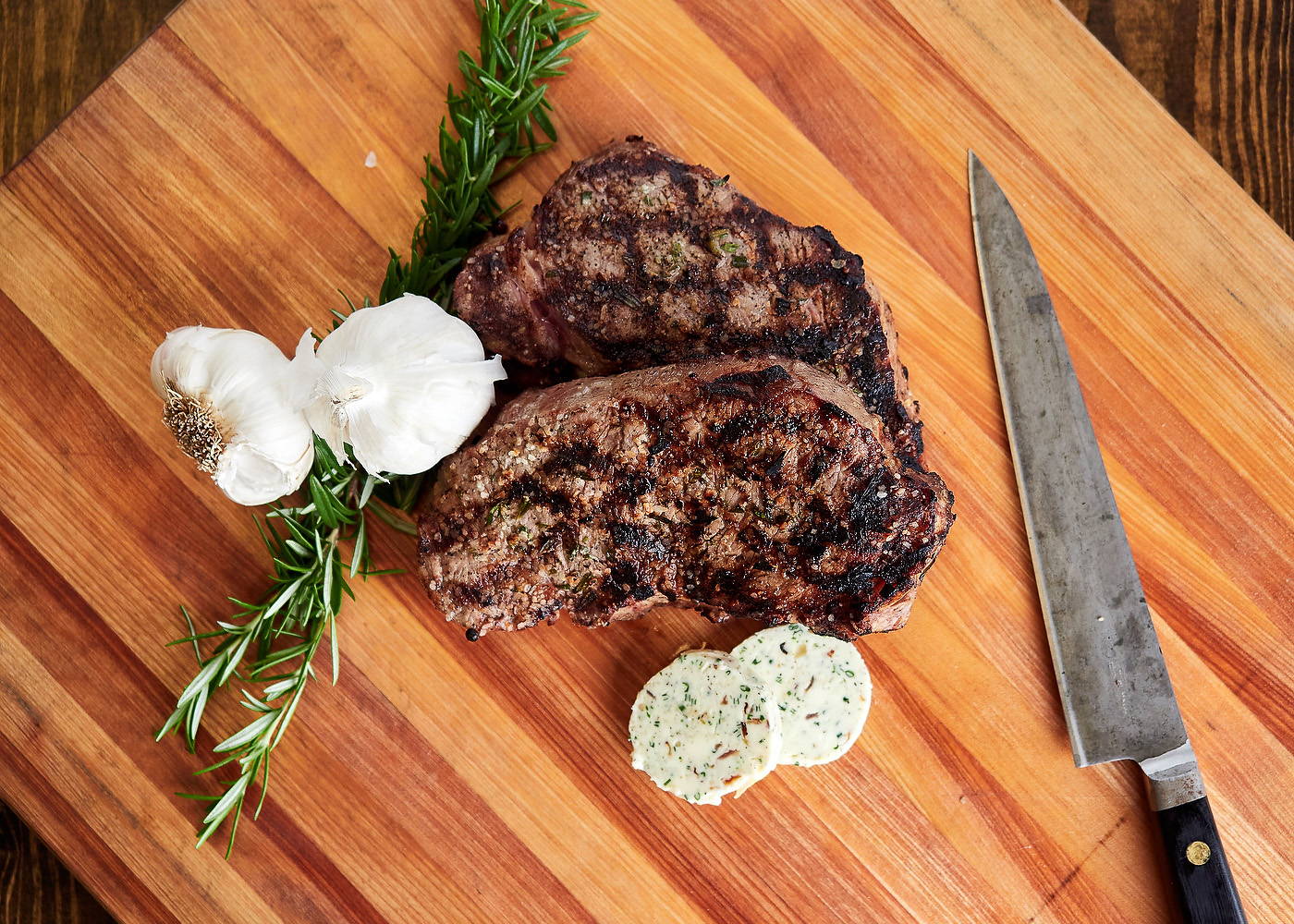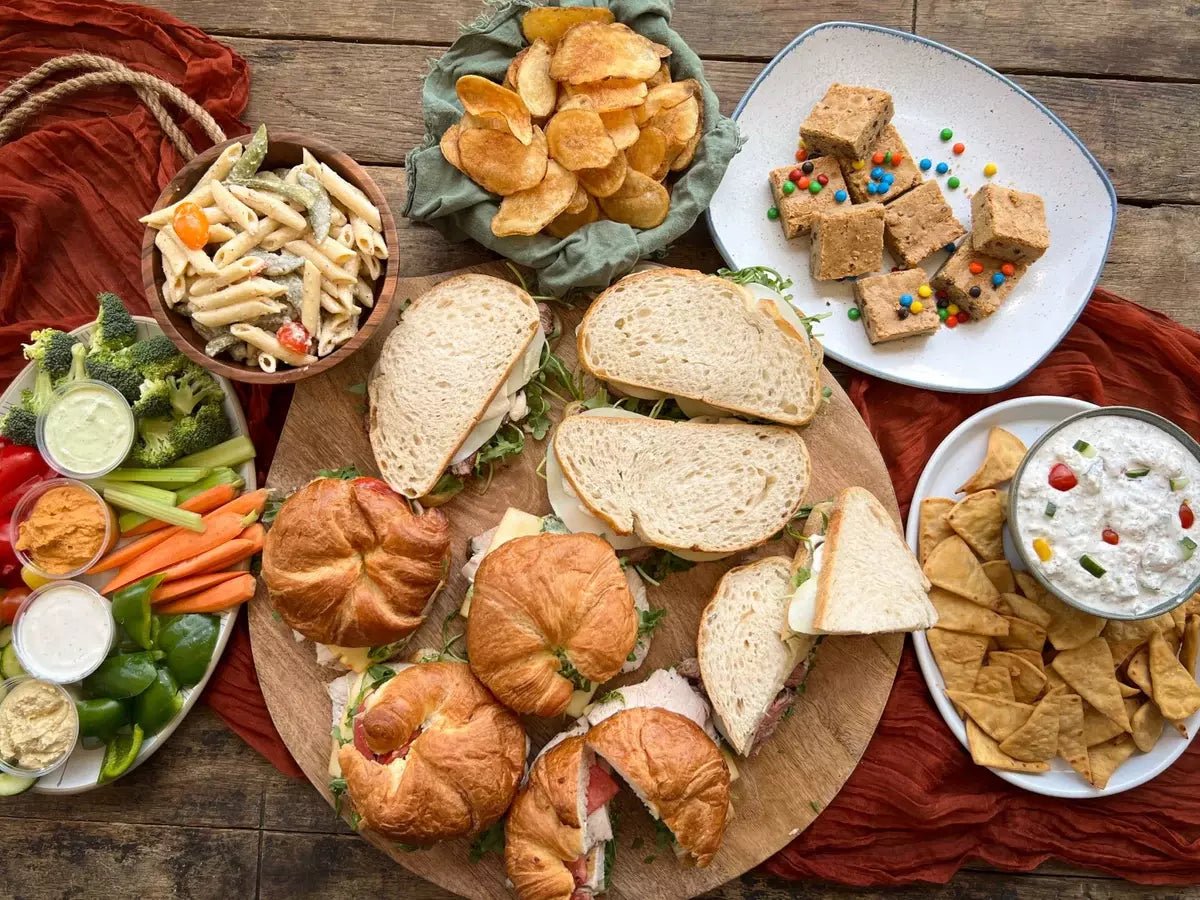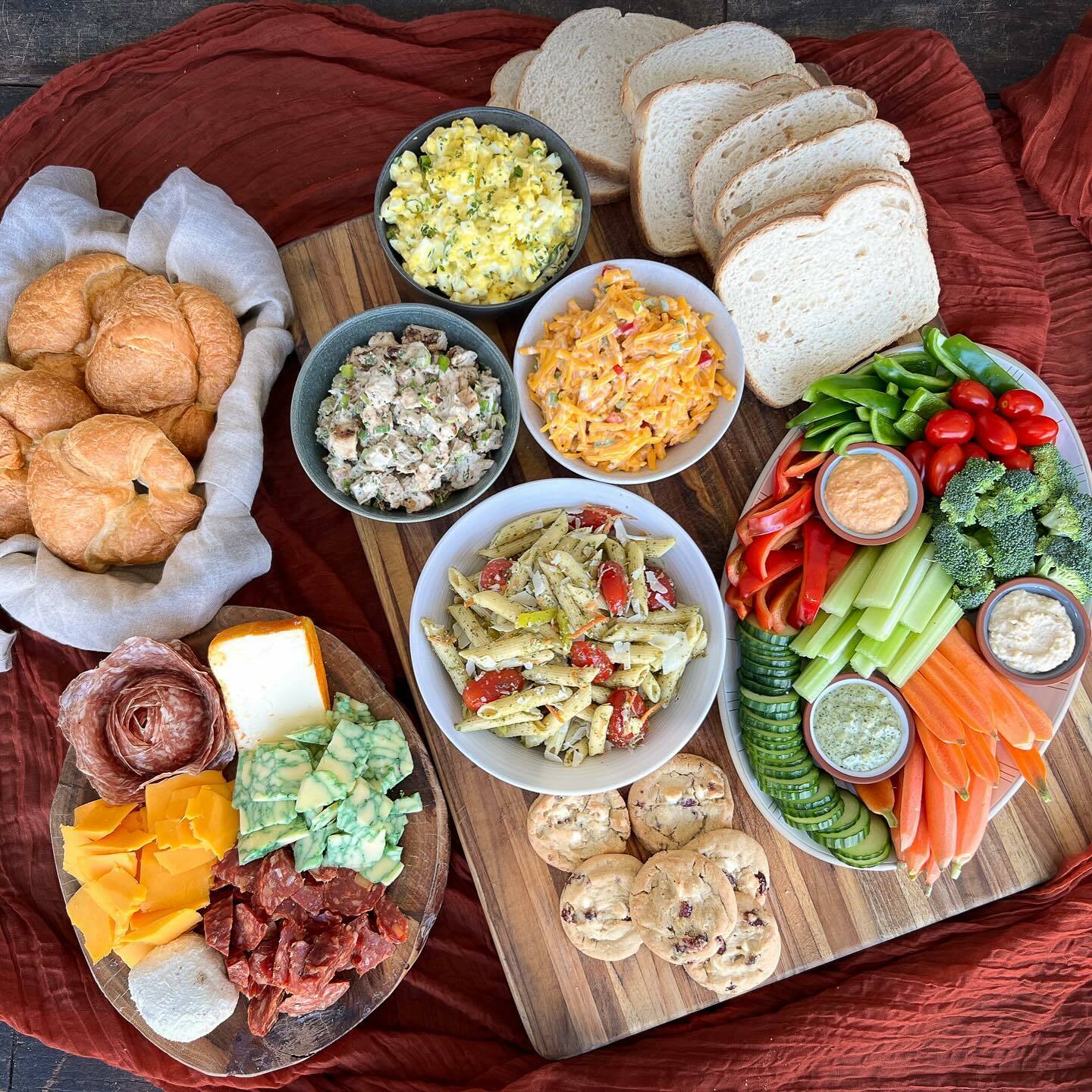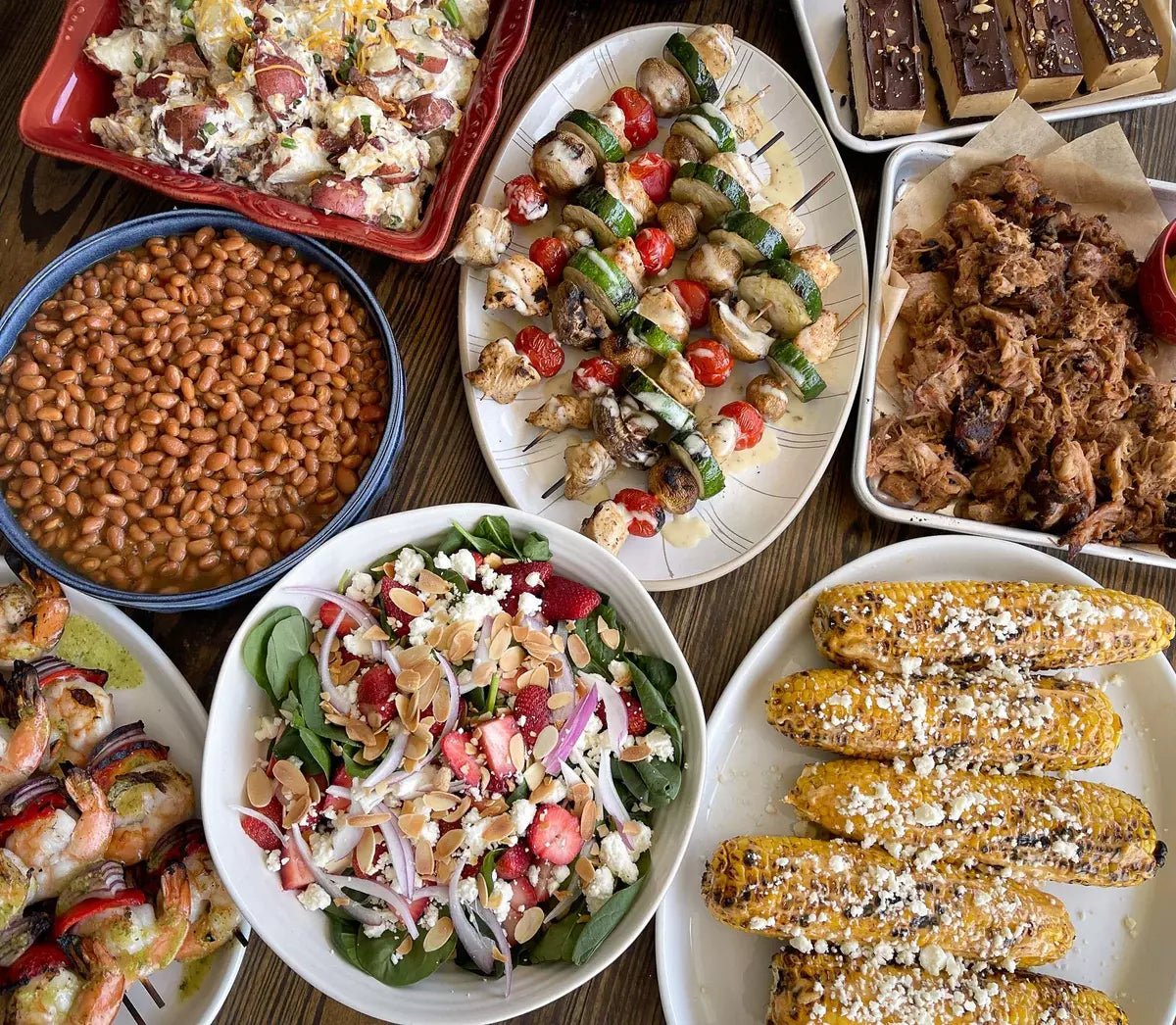
by AJ Donner, Executive Chef
Late summer and grilling go together like beer and burgers. This weekend, before you get your grill fired up, check out these top 5 tips from our experts at Table and Twine!
Chances are that you will be doing a lot of grilling this summer. Our experts opine on some tips you may not know about grilling
1. Let the meat reach room temperature before putting it on the grill!
Chef AJ insists that in order to have a better grilled product, the meat should be removed from the refrigerator and set out on the counter until it reaches room temperature. The reason for this is when the meat is too cold, the addition of high heat shocks it and hinders the cooking process, preventing it from cooking well. It will cause a marked temperature difference between the outside of the food and the inside of the food.
2. Brush your grill with an oil-soaked towel
It is good practice to take an old dish rag or wash cloth and roll it like a burrito and tie it to hold. Use tongs to take your towel and soak it in vegetable, or another high heat oil before rubbing it over the grates on the grill to help prevent sticking.
3. Get your grill screaming hot!
Thermometers are a great tool to gauge how hot your grill is before you add your meat. However, some thermometers only reach 700 degrees before they stop. The grill should be much hotter so if your thermometer doesn’t have a high range, let it hit the maximum read out and wait another 10-15 minutes before adding your meat. Also, it is helpful to identify the different areas of your grill and which run hotter than others.
4. Make sure your beers are on ice
Nothing goes together quite like grilling and drinking a cold beer. Warm beer is just no good.
5. Let the meat rest for 10-15 minutes after cooking it
Meat is predominantly liquid. When liquid is heated, think boiling water, it moves around quite a bit and pressure builds. This is essentially what is happening in meats when they are cooking. If you don’t let the meat rest, then when the meat is cut, all of that liquid circulating inside the product, will rush to the point of pressure release, where you cut the meat. Losing so much liquid results in a dryer product.




